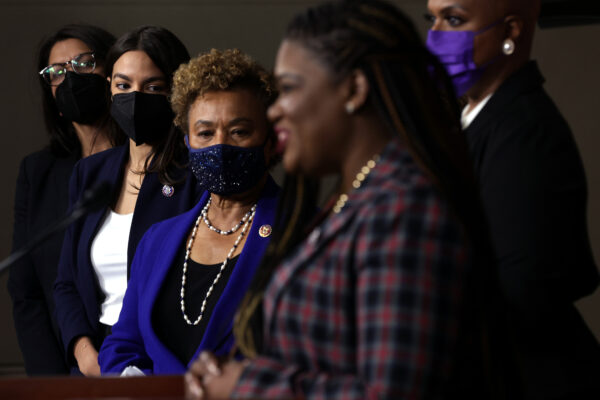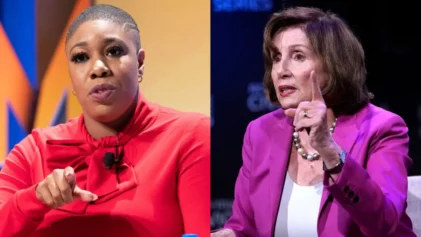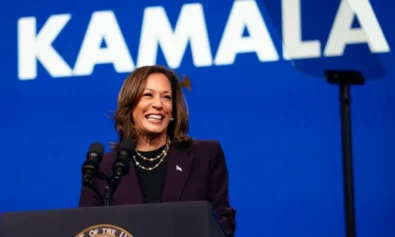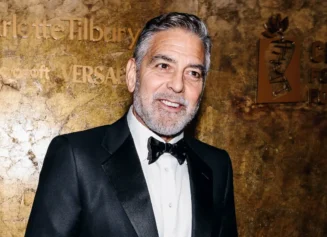Black female lawmakers lauded the president’s decision to select a Black woman to replace Justice Stephen G. Breyer when he retires, but have some concerns about the process leading to the decision.
In a private meeting, members of the Congressional Black Caucus warned of how infighting over who should be picked as the nominee for Supreme Court Justice could damage the party.

CBC members advocating for the judges they would like to serve on the highest court in the country are preparing for attacks from Republican lawmakers, like Sen. Ted Cruz (R-Texas), who have publicly been critical of Biden’s decision to select a Black woman for the role.
Black women on The Hill are excited about President Joe Biden nominating a Black woman to fulfill the Supreme Court Justice’s seat. This opportunity, one that has many politicians jockeying for their person to catch the POTUS’ eye, became available when Breyer announced his retirement in January 2021.
It will be a mark in history — as never in the history of the court has a Black woman been nominated on the U.S. Supreme Court or served in that capacity.
Still, there are concerns that Democrats will not be able to harness their zeal for a particular candidate and start campaigning against the women in consideration, thus muddying waters into which the GOP already has started heaping dirt.
On Tuesday, Feb. 8, reporters asked Rep. Cori Bush (D-Mo.) to comment on if the CBC will rally behind one candidate over another. Her answer was cautious.
“I just don’t think it’s our place to pit Black women against each other in trying to get this spot. No,” Bush stated. “Let’s push all of them up there. And whoever has all the things that’s needed to get this job done, the qualifications, the experience, the will — they got to have the will to do this because it’s going to be tough — let’s let that person rise.”
Women under consideration include Judge Ketanji Brown Jackson of the U.S. Court of Appeals for the D.C. Circuit, Leondra Kruger, a California Supreme Court justice, and U.S. District Judge J. Michelle Childs of South Carolina.
Childs has the greatest visibility advantage with House Majority Whip James E. Clyburn (D-S.C.), the highest-ranking Black member of Congress, pushing hard for her.
Rep. Eleanor Holmes Norton (D-D.C.), when asked about unifying behind one candidate said, “We don’t see any reason to chime up, certainly not before [Biden] comes forward with a nominee considering how many are so, not only qualified, but overqualified. So we have not taken a position yet.”
The need to wait on “chiming in” is crucial to their collective strategy on how to counter Republicans’ attacks on the qualifications and judicial philosophy of the nominee, whoever she may be. The holding of their political tongues will be important to secure bipartisan support that will remind Americans of the neutrality of the court.
This is a particular concern of Justice Sonia Sotomayor, the first Latina on the Supreme Court, who said she had concerns about the nomination process (not any nominee in particular), and philosophically what it does to undermine public perception of the court.
In a virtual lecture for New York University Law School, she said, “I have concerns that we might be in crisis as norms in the nomination process are broken. The more partisan the voting becomes, the less belief that the public is likely to have that Congress is making a merit-based or qualifications-based assessment of judicial nominees.”
The president promises that the person he selects will be qualified and will reflect the diversity of the public.
“While I’ve been studying candidates’ backgrounds and writings, I’ve made no decision except one,” Biden said. “The person I will nominate will be someone of extraordinary qualifications, character, experience, and integrity. And that person will be the first Black woman ever nominated to the United States Supreme Court. It’s long overdue.”
The court was established in 1789, though there have been two Black men, six women and one person of Latin descent (who happens to be a woman). Out of the 115 justices that have been appointed, 6.9 percent have been non-white males.
Members of the CBC are aware of the court’s lack of diversity and have met over what this lifetime appointment could mean for The Republic. In a Zoom meeting, participants punctuated that “all the women on the shortlist have the qualities necessary to sit on the court.”
After the meeting, 14 women from the CBC sent a letter to the president, commending him on staying true to his promise to nominate a Black woman, also as he did his promise to run with one as his vice president.
It said in part, “[We] write on behalf of the over 21 million Black women in America. There is not a single Black woman in the United States Senate to vote to confirm the first Black woman nominated to the Supreme Court. For this reason, we write as a collective to commend you for this historic announcement, and ask that the nominee reflect a deep and abiding commitment to adjudicate with moral and legal clarity.”
The letter continued, “History shows that the appointment of a Black justice with a strong record of affirming constitutional rights is crucial in confronting this country’s racial, civil rights, and democratic crises – and our nation has been better off for this lens and jurisprudence.
As we approach this historic appointment to the Supreme Court, the American people will be well served with the appointment of a Black woman to the bench who has an equally powerful record of advancing civil rights.”
Drafted by Bush and signed by names like Congresswomen Ayanna Pressley, Nikema Williams, Ilhan Omar and Sheila Jackson Lee, it concluded, “The appointment of a Black woman justice with an established record of working to advance racial justice and eradicating entrenched white supremacy is of the utmost importance in reviving the Supreme Court’s credibility, and we look forward to supporting the Administration and US Senate in getting this done.”
Unified, the women understand that their stance has to make sure these women on his shortlist are not pitted against each other.
Nor do they want the Dems, who choose to lobby for their person, to give fuel to narratives presented by politicians like Sen. Ted Cruz and Sen. Roger Wicker (R-Miss.) that says choosing a nominee with consideration on gender and race is devaluing the criterion from merit-based and is in one way a form of affirmative action.
Rep. Barbara Lee (D-Calif.) believes that is an echo of so many people’s attitudes in Congress regarding Black people. She said, “That’s an effort to diminish the value and the brilliance and the competence and the judicial temperament. It’s a way to try to diminish us as human beings and as Black people.”
“This is something I will not allow, will not be quiet, to anyone saying, ‘Oh, my God, we just doing this affirmative action thing. We just got to pull some Black person out. They’re not going to be qualified,’ ” Rep. Brenda Lawrence (D-Mich.) stated in protest.
President Joe Biden said that he will submit his nominee by the end of February.
More news from our partners:
Sashi Brown Becomes Just the Second Black Team President in NFL History With Baltimore Ravens Hire


